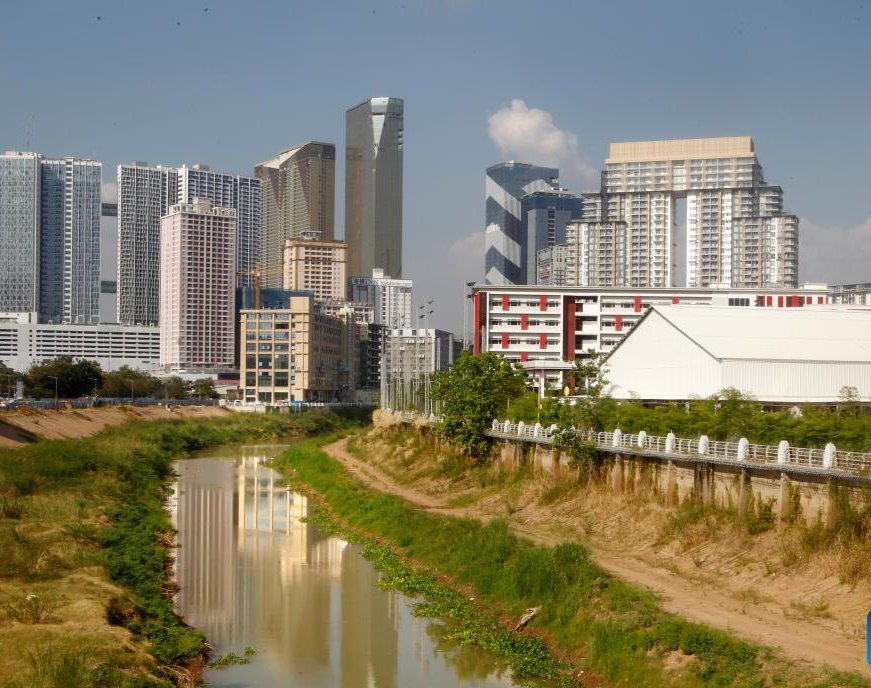Cambodia attracted $2.32 billion in investment from China last year, up 67% from $1.39 billion, according to a report by the Cambodia Development Council. China is the largest foreign investor with 53.4% of cambodia's total $4.35 billion last year. [Chinese investment in Cambodia rises in 2021 despite pandemic- Xinhua]
Chinese investment in Cambodia had increased significantly in 2021 despite the negative effect of the COVID-19 pandemic, which truly reflected Chinese investors' trust in Cambodia's business environment, officials and experts said on Friday.
Cambodia attracted fixed-asset investment of 2.32 billion U.S. dollars from China last year, up 67 percent from 1.39 billion dollars in the year before, according to a report from the Council for the Development of Cambodia.
China remained as the top foreign investor to the Southeast Asian nation, accounting for 53.4 percent of the total investment of 4.35 billion dollars the kingdom approved last year, the report said.
Heng Sokkung, secretary of state and spokesman for the Ministry of Industry, Science, Technology and Innovation, said close ties, the Cambodia-China Free Trade Agreement (CCFTA) and the Regional Comprehensive Economic Partnership (RCEP) trade deal are the main factors encouraging more Chinese investors to Cambodia.
Both the CCFTA and the 15-member RCEP trade deal took effect on Jan. 1, 2022.
"I believe that these free trade agreements, together with Cambodia's favorable investment law, peace and political stability, have provided a great opportunity for foreign investors, particularly Chinese ones, to invest in Cambodia," he told Xinhua.
Sokkung said a high COVID-19 vaccination rate, which has allowed Cambodia to fully reopen since mid-November last year, is also a conducive atmosphere for attracting both foreign investors and tourists.
China's investment in Cambodia focuses on the fields of real estate, garment, footwear and travel goods industry, tourism and agriculture, among others.
"Chinese investment has not only brought in new capital, but also advanced technologies for Cambodia's socio-economic development," he said.
Lim Heng, vice-president of the Cambodia Chamber of Commerce, said the ironclad friendship and the Belt and Road Initiative are also the major factors attracting more Chinese investors to the kingdom.
"Chinese investment, especially during the pandemic, is essential to help boost Cambodia's economy and create new jobs for Cambodian people," he told Xinhua.
Heng said both the CCFTA and RCEP free trade deal would provide greater market access for Cambodian products to China and other RCEP member countries.
Hong Vannak, an economic researcher at the Royal Academy of Cambodia, said besides these free trade pacts, Cambodia has received trade preferences from some countries, which are also a favorable factor for foreign investors to base their production lines here.
"Chinese investors are keen to explore investment opportunities overseas, and Cambodia is one of their most favorite destinations thanks to our excellent ties, enormous potential for investment, investment incentives, and inexpensive labor resources," he told Xinhua.
"There's no doubt that Chinese investors will continue to come to Cambodia in coming years, and our bilateral trade volume will be bigger," he said.
The trade volume between Cambodia and China was valued at nearly 11.2 billion U.S. dollars in 2021, up 38 percent from 2020, according to the Ministry of Commerce.
Cambodian Ministry of Commerce's undersecretary of state and spokesman Penn Sovicheat said China is a huge market for Cambodia, particularly for potential agricultural products such as rice, bananas and mangoes, among others.
"Under the CCFTA and the RCEP trade pact, we hope Cambodia's export to the Chinese market will be larger, especially the export of agricultural produce, industrial products, and processing goods," he said.



